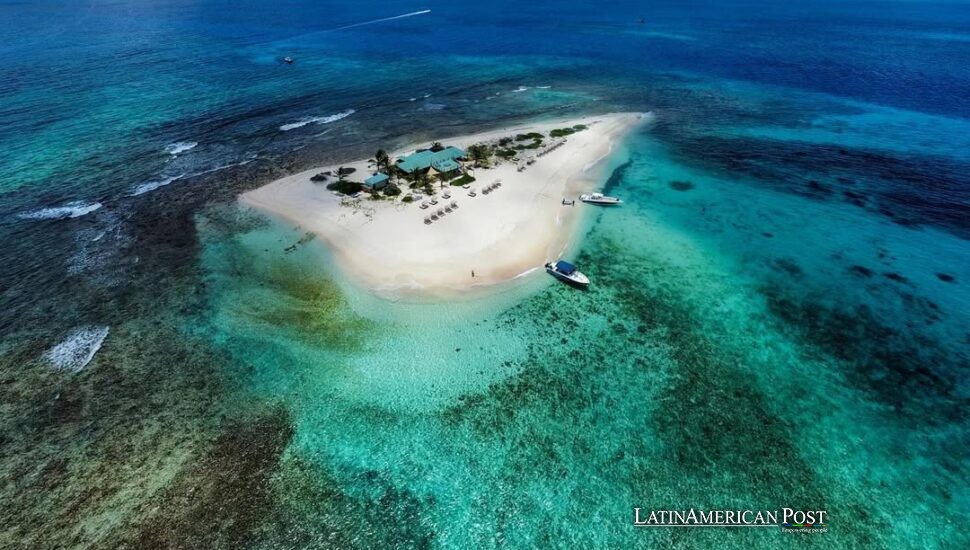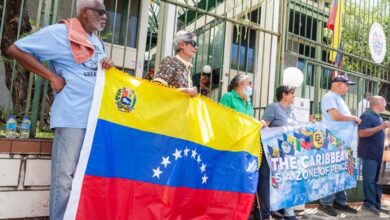How Anguilla’s .ai Domain Became the Caribbean’s Hottest Export

Born in the dial-up era, Anguilla’s .ai internet domain now generates more revenue than some of the island’s tropical resorts. Riding the artificial intelligence wave, this two-letter code is reshaping a small island’s future—powering hospitals, roads, and digital resilience with every registration.
When a Country Code Turns into Gold
Back in the 1980s, when the internet was still in its infancy, every country was assigned a two-letter domain suffix—such as .uk for the United Kingdom and .us for the United States. Anguilla got .ai. At the time, it meant little. Just another dot, another line of code, quietly mapping to a British territory few could find on a map.
Forty years later, those two letters are a goldmine.
As artificial intelligence dominates headlines, venture capital, and startup pitches, the .ai domain has become a coveted, valuable, and increasingly expensive piece of internet real estate. Tech entrepreneurs and major firms now compete for the chance to claim a web address that screams “future.”
And every time they do, a slice of that transaction flows back to this quiet island of 16,000 people.
Just this year, you.ai reportedly sold for $700,000. Cloud.ai fetched $600,000. Law.ai went for $350,000. Domain tracking sites say there are now over 850,000 registered .ai sites—up from less than 50,000 just four years ago. That explosion in demand hasn’t just put Anguilla on the digital map—it’s reshaped the island’s budget.
In 2024, domain sales generated 105.5 million Eastern Caribbean dollars, equivalent to approximately $39 million—nearly a quarter of Anguilla’s total government revenue, according to the BBC. The only larger contributor? Tourism.
Tourism’s Fragility, and a Digital Lifeline
Anguilla is no stranger to luxury travelers. Its turquoise waters, white sand, and five-star resorts pull in celebrities and honeymooners from across the globe. Last year, a record 111,639 visitors touched down on its beaches. But those same beaches sit in the North Atlantic hurricane belt—a paradise always one storm away from catastrophe.
In 2017, the island was slammed by Katia, Irma, and Jose, one after the other. Damage from those hurricanes still echoes in the shape of rebuilding budgets and satellite photos. Tourism may be beautiful, but it’s brittle.
That’s why the .ai boom matters.
Digital revenue doesn’t cancel flights when skies turn black. It doesn’t rely on sunny days or calm seas. It keeps ticking—even when the power doesn’t. For a vulnerable economy, that’s more than a hedge. It’s a lifeline.
Anguilla’s 2025 draft budget predicts .ai will bring in 132 million Eastern Caribbean dollars this year, and 138 million in 2026. Those funds could transform long-stalled projects, such as a new airport, hurricane-resistant clinics, and stronger roads. Britain has taken notice, too. The UK Foreign Office told the BBC it supports Anguilla’s “innovative ways” to drive self-sufficiency. That matters. After Irma, the UK sent £60 million in aid. The dream now is to need less next time.
Click by Click, the Cash Pours In
Of course, turning hype into stability takes more than good timing—it takes smart infrastructure. Last year, Anguilla inked a five-year deal with Identity Digital, a U.S.-based registry operator. The company now manages the domain’s backend and shares revenue with the government. Servers were relocated off the island to reduce outage risk during storms. Every domain registered or renewed sends money home.
Exact registration fees aren’t public, but major domain sellers list .ai names starting at $150 to $200, with renewals due every two years. Even a name that sells for $500,000 still must pay the basic fee. According to BBC reporting, Anguilla keeps the gross revenue. At the same time, Identity Digital takes around 10%—though neither side would comment on the record.
It’s a model built for scale. And it avoids the missteps of past digital jackpots.
Take Tuvalu, the Pacific island that licensed out its .tv domain—perfect for streaming startups—for a flat rate. When those domains exploded in value, Tuvalu was stuck with crumbs. It eventually renegotiated, but Anguilla has been playing the long game from the start. It opted for a revenue-share deal, not a one-time check. That choice leaves more upside—and more responsibility.
A Tech Boom—and a Test of Stewardship
For Dharmesh Shah, co-founder of HubSpot and an enthusiastic .ai buyer, the domain rush is part inspiration, part speculation. He told the BBC he envisions products that help people create digital versions of themselves—but admits he may sell his .ai names before building anything.
Even he cautions: .com still holds deeper long-term value.
That’s precisely why Anguilla is treating the moment with care. It’s tempting to treat $39 million a year as found money. However, the more brilliant play is to make it earn money by investing it in visible, long-term investments that outlast the AI hype cycle.
That means clinics with backup power. Roads that survive more than one rainy season. An airport that supports the island’s top-paying guests. And, perhaps most importantly, training young Anguillians for careers beyond hotels and construction. If the island’s wealth is going digital, its workforce should, too.
The numbers are dizzying for such a small place. From 50,000 domains to 850,000 in four years. From a few thousand in revenue to nearly a quarter of the national budget. But as the BBC rightly notes, the actual test isn’t how high the numbers go. It’s what Anguilla does with them when the world moves on to the next shiny thing.
Also Read: Mexico’s Maquiladora Factory Dreams Fade as Tariffs Silence Juárez
Because in a place where a single hurricane can wipe out a season’s income, two little letters—.ai—have become more than just a domain.
They’re a chance to build something more substantial than luck.




